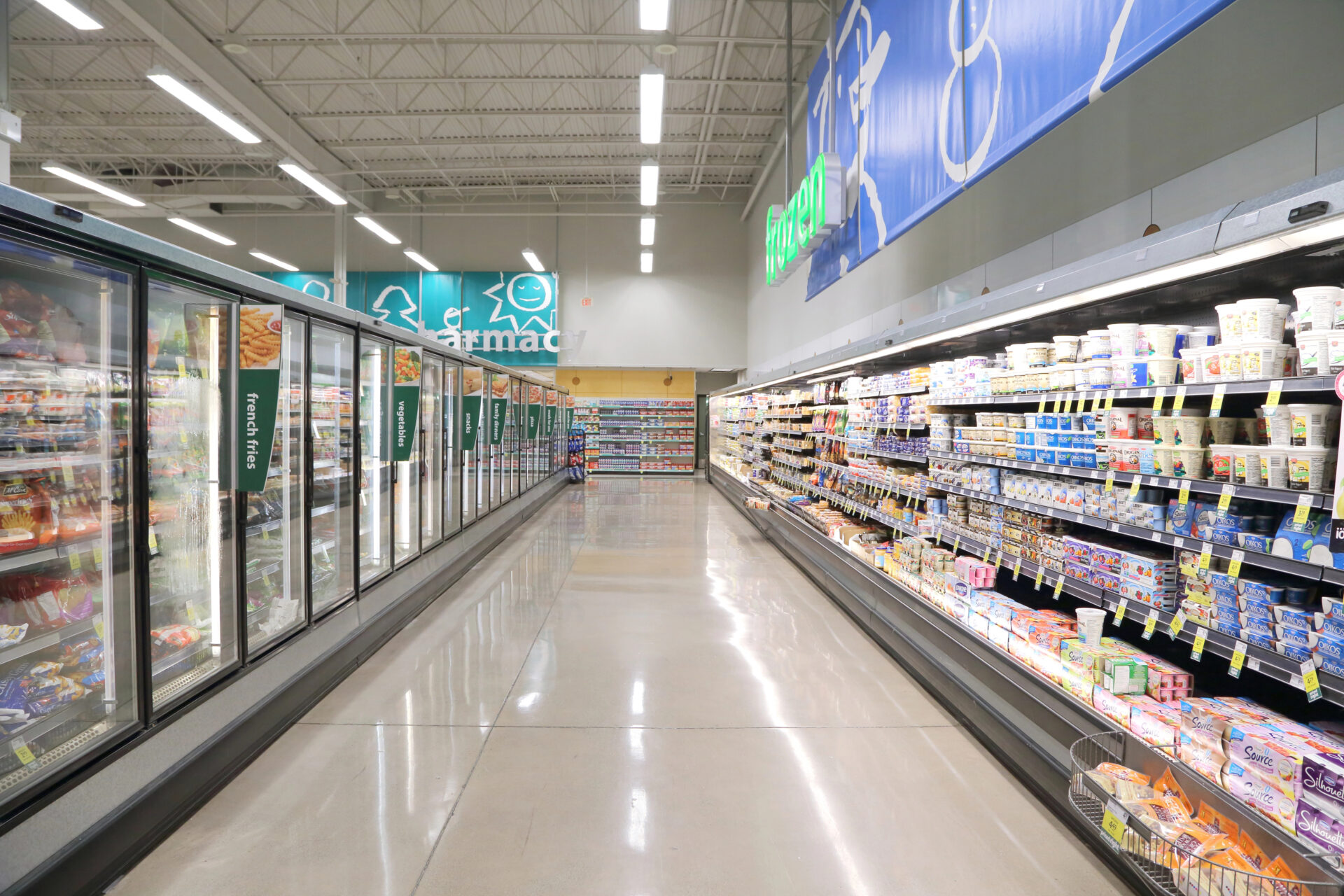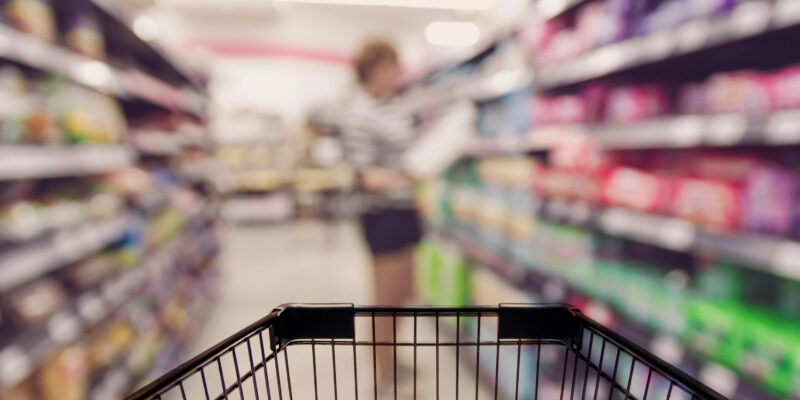A global scientific study examining the relationship between the most popular herbicide, glyphosate, and cancers may impact global safety levels soon. Rats exposed to glyphosate at doses deemed “safe” by regulators for human populations were found to have instead caused 6 of the top 10 most common cancers in the world. What does this mean for American humans exposed to glyphosate, especially pregnant women and children? You’ve trusted Mamavation to bring you investigations like safest water filters to remove PFAS, safest air purifiers, safest cookware, and safest mattresses. Now, join us as we explore this latest study about glyphosate.
Disclosure: This post was sponsored by the Detox Project. This post also contains affiliate links, with some to Amazon, which means Mamavation will receive a portion of those sales. You can also give a tax-deductible donation to our consumer studies here through Environmental Health Sciences. Thank you! Copyright © 2025 Mamavation — All Rights Reserved

Table of Contents
Global Study Shows Glyphosate Causes Multiple Cancers at Doses Previously Deemed “Safe”
A 2-year, multi-institutional and global research study published in Environmental Health referred to as the “Global Glyphosate study” found that rats exposed to the herbicide glyphosate at doses deemed “safe” by regulators for the human population were instead found to have caused 6 of the top 10 most common cancers in the world. In other words, the implications are that glyphosate was indeed not safe, but the very reason why these animals got cancer.
Glyphosate, the most widely used herbicide in the world, was classified as a “probable human carcinogen” by the International Agency for Research on Cancer (IARC) in 2015. The evidence was based on studies of non-Hodgkin lymphoma in humans and additional cancer studies on animals. These scientific declarations further resulted in billions of dollars of legal claims against Bayer for producing Roundup, a product containing the active ingredient, glyphosate.
Most noteworthy were the following:
- This is the most comprehensive study ever done on an agricultural chemical. The only thing that compares to this are tobacco and asbestos studies done 30-40 years ago.
- The 2 year study is part of a 7-year study that is multi-institutional and global, including the United States, Italy, UK, and Monaco, whereas most studies on glyphosate are only done by one institution. This increases the credibility of the findings.
- Cancers caused in the Sprague-Dawley Rats during stydy: breast cancer, skin cancer, liver cancer, leukemia, thyroid cancer, pancreatic cancer, bladder cancer, bone cancer, hemangiosarcoma, adrenocortical carcinoma, central nervous system cancer, & uterine cancer.
- A rise in childhood leukemia could be due to the increase in glyphosate. 40% of leukemia deaths in the treated rat groups occurred early in life, and between 1990 and 2021, the global number of childhood cases of leukemia increased by close to 60%. This is very important for pregnant women to understand.
- Globally recognized institutions were involved. The Global Glyphosate Study was led by Cesare Maltoni Cancer Research Center of the Ramazzini Institute in Italy and involves scientists from Boston College, George Mason University, King’s College London, Icahn School of Medicine at Mount Sinai, Scientific Centre of Monaco, University of Bologna, the Institute of Agricultural Biology and Biotechnology of the Italian National Research Council, the Italian National Institute of Health, & the National Food Safety Committee of the Italian Ministry of Health.
“The findings from this carefully conducted study, and especially the observation that prenatal exposures of infant rats to glyphosate during pregnancy increase incidences and mortality from early-life leukemia, is a powerful reminder of human infants’ great vulnerability to toxic chemicals and strong reason to eliminate glyphosate from the production of foods consumed by pregnant women and their children,” Dr. Phillip Landrigan, study co-author and Director of the Program for Global Public Health and the Common Good at Boston College.

Exposure Levels of Glyphosate in the United States
Environmental exposure to glyphosate has increased dramatically since the introduction of “Round-up Ready” genetically modified (GMO) crops in 1996 for soybean, maize, and cotton varieties. “Round-up Ready” genetically modified crops made it possible to utilize glyphosate as a broadcast herbicide while not killing the crops they were sprayed on. Rates of glyphosate use have exploded since it’s approval. In 1995 farmers were using 40 million pounds of glyphosate, but by 2014 that number has increased to 280-290 million pounds according to the Environmental Protection Agency (EPA). More recently, since 1992, Midwestern corn and soybean farmers have increased their usage of glyphosate nearly 40 times and by 2016 were using a total of 188.7 million pounds.
There are additional ways that consumers can find glyphosate in their food, besides just the conventional application of this herbicide. According to the Detox Project, pre-harvest desiccation could be why glyphosate is found in such high amounts in particular healthy foods like legumes, wheat, & oats. What is pre-harvest desiccation? This is when glyphosate is sprayed on crops in the late season, just before they are due to be harvested. The extra spraying of glyphosate works to dry out the crops in the field early, thus shortening the time they are in the field. This saves the farmer and food companies money and resources, which is why it’s done. But at what cost do consumers pay for early crop drying? Glyphosate has staying power and persists on the food and can be found in higher levels because of this practice.
You can also be exposed to glyphosate in your environment. Glyphosate is also extensively used for deforestation efforts, such as killing brush in fire zones. Landscapers also heavily rely on it to kill greenbelt and golf course weeds. Ultimately, glyphosate eliminates weeds and shrubs, such as annual and perennial grasses, broadleaf weeds, and woody species.
Glyphosate has been linked to other human health problems from exposure:
- Harms beneficial gut bacteria
- Birth defects
- Infertility
- Reproductive issues, such as miscarriages
- Shorter pregnancies
- Increased infant mortality
- Certain cancers, like non-Hodgkin lymphoma and breast cancer
- Liver and kidney damage with exposure as low as 0.05 parts per billion (ppb) and linked to altering gene function of over 4,000 genes in the kidneys and livers of rats at 0.1 parts per billion (ppb) from glyphosate formulations.

Looking For Glyphosate Free Products? Opt for Certified Glyphosate-Residue Free Products by the Detox Project
We used to believe that shopping glyphosate-free meant shopping USDA organic, but pesticide drift, manufacturing contamination, and international food fraud have made this idea slightly less realistic. In addition, the USDA organic standards do not include a test for glyphosate, the most popular herbicide in the world, as do other countries like New Zealand. So, how do you know how much glyphosate is in your organic food? You don’t unless you test it. This is because USDA Organic is a farming plan that is certified by the USDA and then implemented under the careful watch of independent auditors. However, as other countries tightened up their organic standards, the United States has not kept up with the pace. This has become problematic overall as food fraud is dumped in the United States. In fact, just recently, Mamavation found glyphosate in organic protein powder brands.
This sounds frustrating, but a solution has emerged. There is a way to shop for products with more confidence that they are glyphosate-free. Look for the “Glyphosate Residue-Free” certification from the Detox Project. Products certified by the Detox Product must be tested 3x per year using an independent ISO 17025 accredited laboratory, using gold standard low detection liquid chromatography tandem-mass spectrometry (LC-MS/MS) methods. To receive the certification, they must be non-detectable for glyphosate at the lowest standardized detection standards.
To make this easy for you, Mamavation went through the Detox Project list of certified brands and pulled out some brands that are readily available on Amazon, or we have a discount code for:
Proteins
- Pasturebird: Pasture-raised chicken
Pasta
- Brami: Pastas
- VeggiePasta: Pastas
- Wholly Wholesome: Gluten-free pastas (dedicated warehouse) & regular pasta
Bone Broth
- Fond: Bone broth
- Kettle & Fire: Bone broth
Granola, Oats, & Cereal Brands
- Purely Elizabeth: Granola, oatmeal, & cereals
- Red Tractor Foods: Oats
- MUSH: Overnight Oats
- Seven Sundays: Muesli, granola, & cereals
Hummus, Chickpeas, Beans, Etc.
- Baba’s: Hummus
- Clear Creek Foods: Beans
- Little Sesame: Hummus
Bread, Bagels, & Pasta
- Jovial Foods: Pasta, tomatoes, beans
- Sola: Bread & bagels
Snacks & Protein Bars
- Quinn: Pretzels
- Picky Bars: Chocolate, trail mix, & granola
- Bobo’s: Snack foods
- Zing: Protein bars
- Hippeas: Chickpea snacks
- Artisan Topic: Grain-free, Seed-oil free crackers
- Three Farmers: Chickpeas, lentils, pea snacks & salad add-ons
- Heavenly Hunks: Sweet snacks
- Natural Delights: Dates
- Joolies: Dates
Nut Butters
- Barney Butter: Nut butters
- Crazy Richards: Nut butters
Honey
- Heavenly Organics: Honey
- Wedderspoon: Honey
- 100% Pure New Zealand Honey: Honey
- Bees & Trees: Honey
- New Zealand Honey Co: Honey
Frozen Foods
- Strong Roots: Plant-based meals
Plant-Based Alternatives
- Willa’s: Oatmilk
- PlantStrong: Almond & oatmilk
- Nutpods: Plant-based coffee creamers
- Minor Figures: Oatmilk
- RISE Brewing: Oatmilk, plant-based coffee creamers
- Califia Farms: Oatmilk, almond milk, plant-based coffee creamers
- Elmhurst: Oatmilk
- Good Karma: Flaxseed milk
- Chobani: Oatmilk
- Almond Cow: Nuts for milk
- Oatly: Oatmilk, plant-based coffee creamer
Cooking Oils
- Algae Cooking Oil Club: Oil (This oil also tested low in phthalates in our cooking oil investigation)
- Nutiva: Avocado oil, (This oil also tested low in phthalates in our cooking oil investigation)
Supplements
- Perfect Supplements: Collagen (Mamavation also tested this product for phthalates)(Use discount code “MAMAVATION” for 10% off and free shipping)
Fruit Juices
- Uncle Matt’s Organic: Juices


 Coconut Oils Tested for Toxic Phthalates — Buying Guide
Coconut Oils Tested for Toxic Phthalates — Buying Guide
NZ government is introducing a new law which will allow Glyphosate levels to be legally up to 100 times higher than at present.
Look it up for yourself.
Thank you for providing this info. I recently tested positive for high doses glyphosate inspite of eating organic . My adult son was negative. The only products that I have used a lot over the pandemic were essential oils from 2 different companies. It frustrating that, those 2 companies claim to have “pure” oils but were positive for forever chemicals, based on your research. Would you be able to test some of my oils for glyphosate? Or, would you be able to tell me if those oils were positive for glyphosate? I would really appreciate it.
Thanks you very much for these helpful suggestions.
Hi Leah,
I’m just wondering if you’ve ever done any testing of grains, spices, nuts, corn, raisins, etc., for known carcinogens in the form of molds (aflatoxins and ochratoxins are a common ones, but there are others, too). They’re also known to affect the kidney and developing fetuses.
One of the reasons glyphosate is sprayed on crops of things like grains and legumes as a desiccant, is to reduce the incidence of mold.
So while I’m wanting to minimize glyphosate exposure, it’s a bit of a trade off, because mold is a known carcinogen, not just suspected.
Leah,
Trying to remember if you’ll be testing matcha powder (not green tea) since it’s so popular now with “higher levels of antioxidants, L-theanine, and caffeine. Matcha is generally considered the superior choice compared to regular green tea.”
From a member post on your site, supposedly SOAR’s matcha has good lab tests results on lead & heavy metals. I looked up the lab stats & they look good to me but what do I know?🤔
Thank you!
What is frustrating is that most items on this list are not organic – so even if they do not have glyphosate on them, they most likely have countless other pesticides on them that are also carcinogenic and cause other extensive health issues. Why isn’t there any CLEAN food in America anymore?!?! It’s heartbreaking and unacceptable that the government doesn’t care about citizens safety as much as it cares about agribusiness
Exactly!!!!!! Why do we have to be on the offensive just to go grocery shopping and analyze everything before it is bought???
I follow your articles and valythe information that you provide, however, there is only one issue I have. I have been diagnosed with multiple illnesses that are debilitating. Possibly due to all our contaminated food we have in the United States among other reasons and I have no income due to not being able to work from all the disabilities the illnesses bestow upon me. I do get food stamps for food and unfortunately most of the brands your articles suggest I am unable to find in stores that take SNAP EBT benefits or if I find them on websites such as Amazon they are not covered under that benefits program. Would there be a way to test and list products that are carried in stores such as Target, or Walmart? It would be very helpful for those of us that are less fortunate! Thank you for everything you do already to keep us informed!
Check out Thrive Market. They take electric SNAP EBT benefits.
Thank you for this info, it’s golden!! And life saving